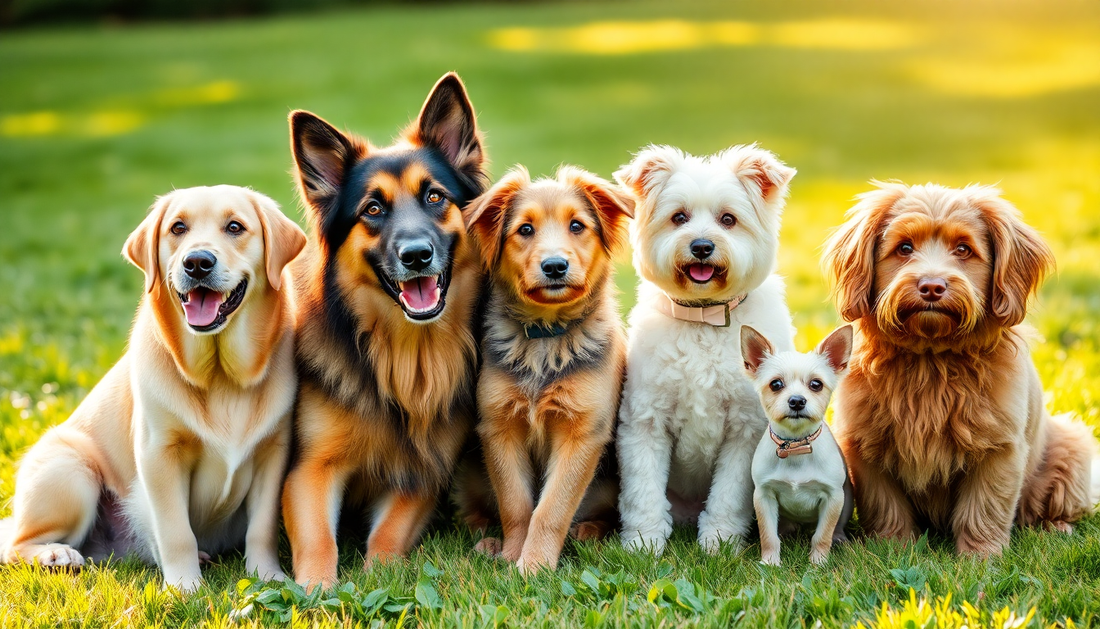
Unleash the Perfect Companion: A Guide to the Best Dog Breeds
Share
Navigating the vast world of dog breeds can be an exhilarating yet daunting task for prospective pet owners. With hundreds of unique breeds, each with its own distinct personality, energy level, and grooming requirements, the choice can seem overwhelming. However, fear not, for this comprehensive guide will lead you on a journey to discover the best dog breeds that will seamlessly fit into your lifestyle and bring endless joy to your life.
Factors to Consider When Selecting a Dog Breed
Before diving into the world of canine companions, it's essential to consider several key factors that will help you make an informed decision. After all, a dog is not just a pet – it's a lifelong commitment that requires careful planning and preparation.
Lifestyle Compatibility
One of the most crucial factors to consider is the compatibility between your lifestyle and the breed's needs. Are you an active individual who enjoys outdoor adventures, or do you prefer a more sedentary lifestyle? Do you have a large backyard or live in a cozy apartment? Matching the breed's energy level and space requirements with your own will ensure a harmonious relationship.
Family Dynamics
If you have children or plan to start a family, it's crucial to choose a breed that is known for its gentle, patient, and family-friendly temperament. Some breeds thrive in households with young children, while others may require more supervision and socialization.
Grooming Requirements
Grooming needs can vary significantly between breeds, from low-maintenance short-haired dogs to high-maintenance long-coated breeds. Understand the time and effort required to keep your furry friend well-groomed and healthy.
Top Dog Breed Categories
Now that you've considered the essential factors, let's dive into the world of the best dog breeds, categorized by size and purpose.
Small Breeds
Small dogs, often weighing less than 20 pounds, are beloved for their adorable appearance and adaptability to various living situations. These breeds, such as the Chihuahua, Pug, and Shih Tzu, are known for their affectionate nature, minimal exercise needs, and relatively low grooming requirements. However, their small size also means they may be more fragile and require extra care, especially around young children.
Medium Breeds
Medium-sized dogs, typically ranging from 20 to 60 pounds, offer a versatile balance of size, energy, and temperament. Breeds like the Labrador Retriever, Golden Retriever, and Beagle are popular choices for their friendly, intelligent, and adaptable personalities. These dogs often excel in various activities, from family companionship to obedience training and outdoor adventures.
Large Breeds
Larger dog breeds, weighing over 60 pounds, command a majestic presence and often possess impressive physical capabilities. Breeds such as the Bernese Mountain Dog, Great Dane, and Newfoundland are known for their gentle, loyal, and protective nature. However, their size also means they require more space, exercise, and potentially higher food and veterinary costs.
Special Purpose Breeds
Beyond the traditional size categories, there are several specialized dog breeds that excel in specific roles and tasks.
Working Dogs
Breeds like the German Shepherd, Rottweiler, and Doberman Pinscher are renowned for their intelligence, strength, and trainability, making them well-suited for roles such as law enforcement, search and rescue, and personal protection.
Family Dogs
Some breeds, like the Bulldog, Cavalier King Charles Spaniel, and Poodle, are particularly adept at providing companionship and affection within a family setting. These dogs often thrive in households with children and are known for their patience and gentle nature.
Hypoallergenic Breeds
For individuals with pet allergies, hypoallergenic breeds like the Poodle, Maltese, and Miniature Schnauzer may be the perfect solution. These dogs produce less dander and are less likely to trigger allergic reactions.
Guard Dogs
Breeds like the Akita, Doberman Pinscher, and Rottweiler are renowned for their protective instincts and can serve as effective guard dogs, deterring potential intruders and providing a sense of security for their owners.
Emerging and Rare Breeds
In the ever-evolving world of dog breeds, there are also some unique and lesser-known breeds that are gaining popularity. These include the Dogue de Bordeaux, a massive French mastiff-type dog with a distinctive wrinkled face, and the Xoloitzcuintli, a hairless breed with a long history in Mexican culture.
While these breeds may offer intriguing characteristics, it's important to research their specific needs and potential challenges, as they may require specialized care and socialization.
Breed Selection Tips
When selecting the perfect dog breed, it's crucial to approach the process with care and responsibility. Responsible breeders who prioritize the health and well-being of their dogs should be your primary source. Additionally, consider the option of adopting a rescue dog, which not only provides a loving home but also helps alleviate the burden on overcrowded shelters.
Regardless of the breed you choose, proper training and socialization are essential to ensure your canine companion develops into a well-behaved and well-adjusted member of your family.
Conclusion
Choosing the best dog breed for your lifestyle is a deeply personal decision that requires careful consideration of your needs, preferences, and the unique characteristics of each breed. By understanding the factors that contribute to a successful dog-owner relationship, you can embark on a journey to find the perfect furry companion who will enrich your life with unconditional love, loyalty, and endless adventures.
So, take the time to explore the diverse world of dog breeds, and let your heart guide you to the four-legged friend who will become an integral part of your family. With the right match, you'll unlock a world of companionship, laughter, and memories that will last a lifetime.
